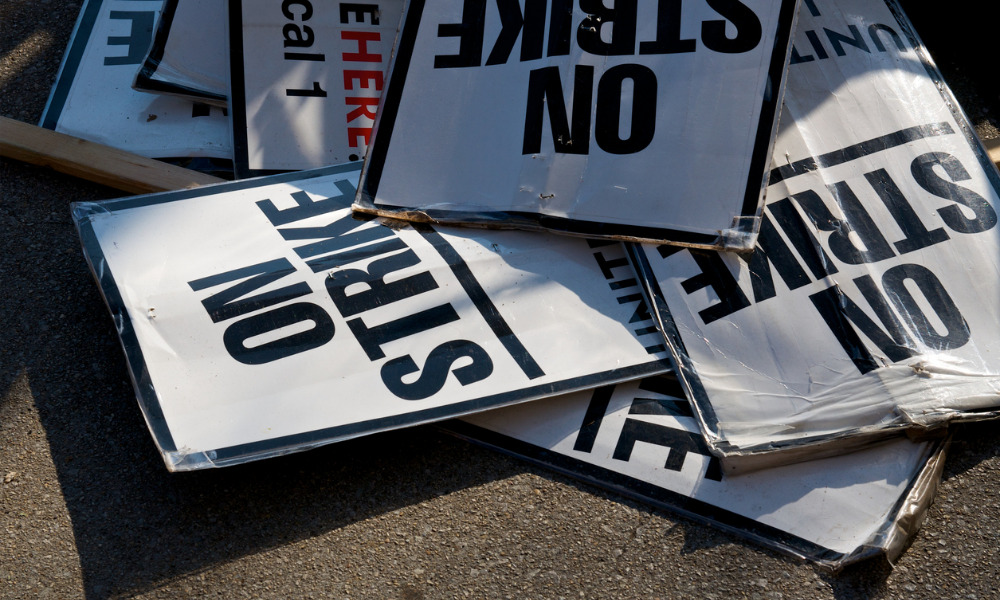
Violators could be asked to explain action in front of fellow union members, face fine, suspension

Several unions are on the hunt for members who cross the picket lines while the Public Service Alliance of Canada (PSAC) was on strike last month.
About 96 per cent of non-essential workers in the Treasury Board group of striking PSAC workers took strike action during the first week of the labour stoppage, according to government figures.
And those who continued working amid the 12-day strike "disrespected" other members of the union, said the Union of Veterans' Affairs Employees (UVAE) – one of the 15 unions that make up the PSAC – in a letter to members, according to a CBC report.
"Let me also say how disappointed I and UVAE are with those UVAE members who were not deemed essential and yet decided to go to work during the strike either in the workplace or virtually," says Virginia Vaillancourt, the union's national president.
"You have dishonoured and disrespected your fellow UVAE members who walked the picket line every day on your behalf."
UVAE plans to penalize members who crossed the picket line during the strike. It has been receiving the names of members who worked during the legal action.
Anyone with information about workers who broke with the strike action can also send names to the union’s national office.
The Union of Taxation Employees (UTE) is also working to identify members who crossed the picket line or worked voluntarily.
"In order to afford potential scabs procedural fairness and an opportunity to be heard, the process may take some time," Marc Brière, national president of the UTE, told CBC via email.
"Rest assured, however, the Union of Taxation Employees intends to apply the provisions of the PSAC constitution and UTE bylaws dealing with the issue of scabs to the fullest extent possible."
Canadians sided with some of the demands of the workers who went on strike asked from the federal government. Overall, about two-thirds (65 per cent) of Canadians said they support wage premiums for night shifts and overtime hours, compared to just 27 per cent who are not in favour of the government giving members of the PSAC this particular demand.
Meanwhile, the Canada Employment and Immigration Union (CEIU) is encouraging its smaller locals to hold people accountable for crossing the picket line.
One possible punishment is for those workers to be called to a meeting and asked – in front of other union members – to explain their decision, said Crystal Warner, a member of the national executive CEIU.
While that may be ample punishment, violators may also face fines and suspensions, she said, but CEIU believes only a "relatively small number" of members crossed the picket lines.”
Previously, about 155,000 PSAC members joined the strike action, and even those who are working remotely were asked to picket.
“Remote work or telework allows an employee to work from home rather than from a specific worksite but does not exclude them from the bargaining unit,” the PSAC said on its website.